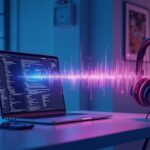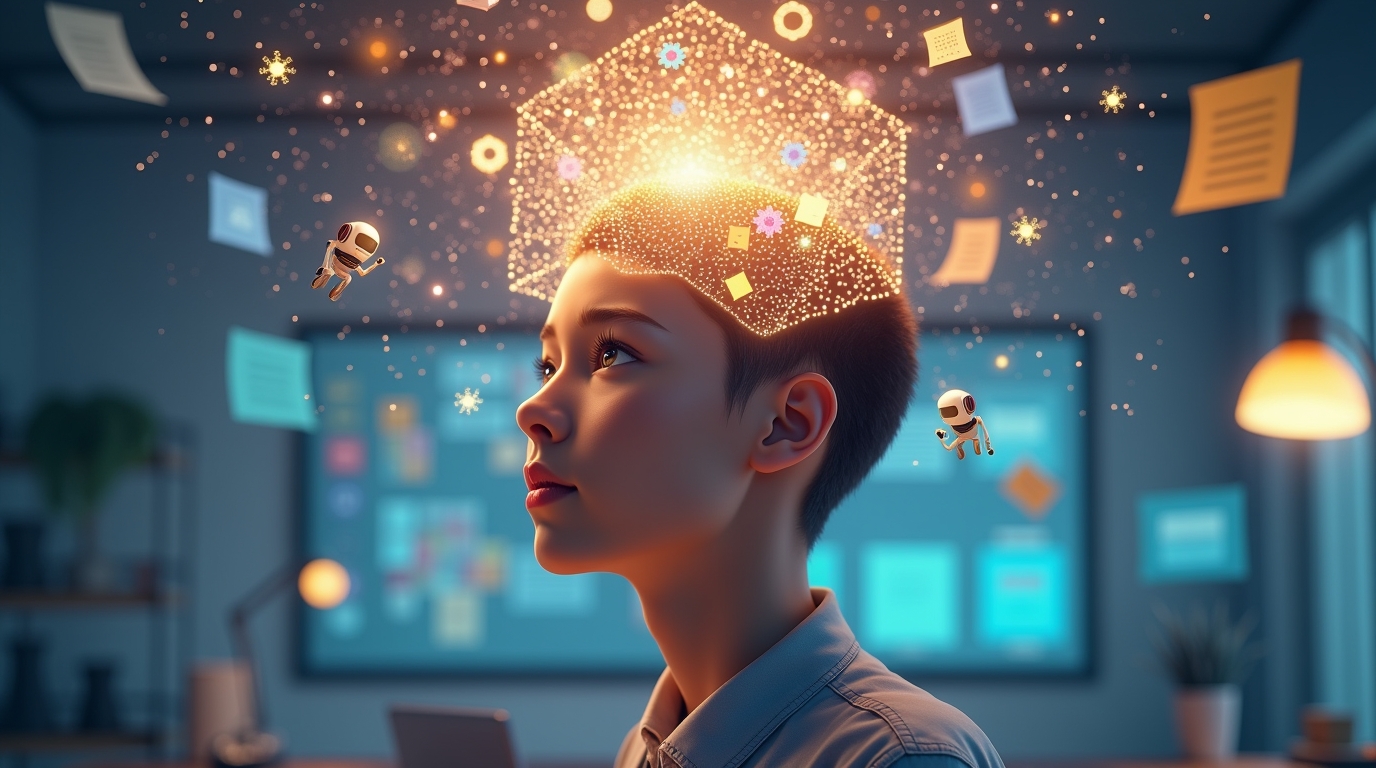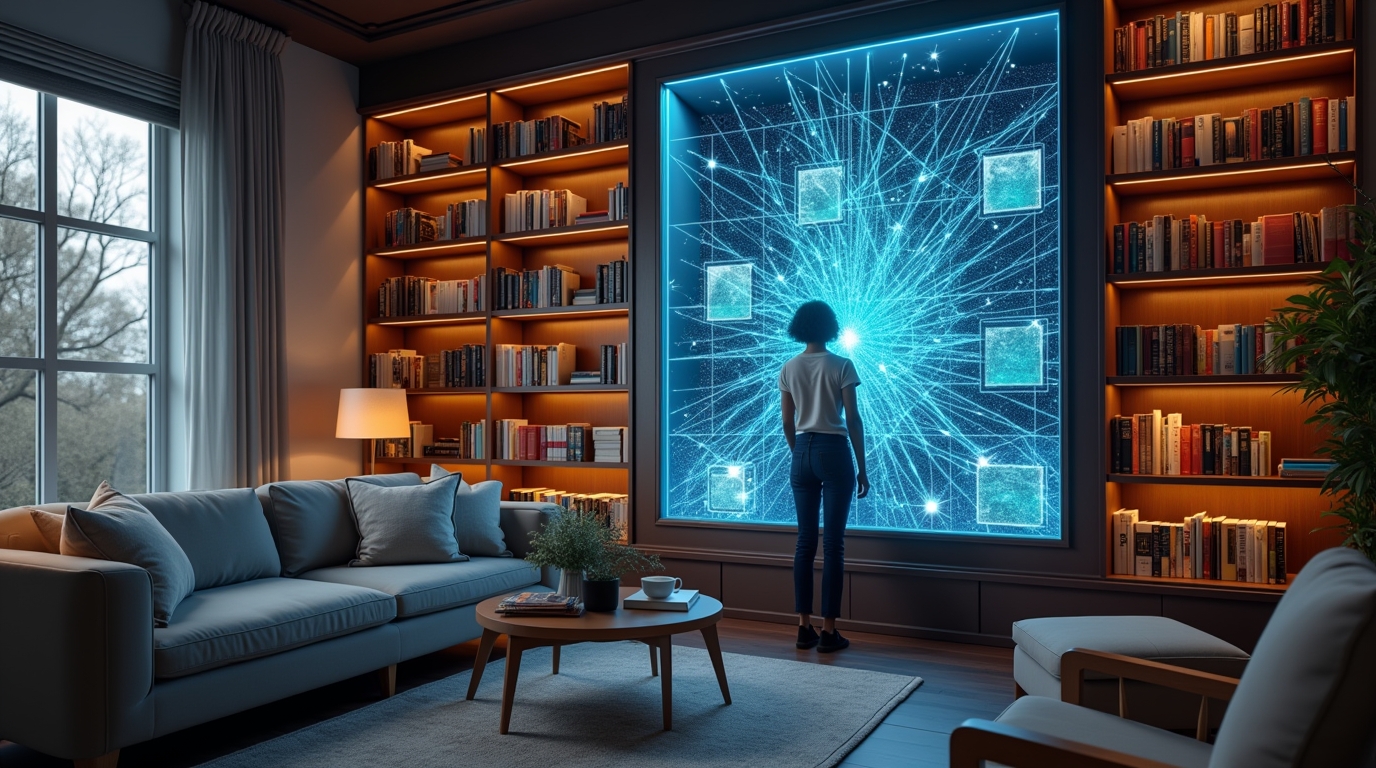Introduction: It’s Not a Willpower Problem, It’s a Wiring One—And AI Gets It
You know that feeling of being told to simply focus more, or purchasing another planner (so many planners! So many unfinished planners!), that you never got around to actually using. The frustration. The overwhelm. Neurodivergent neurology, aka ADHD, autism, dyslexia, and other derivative minds, tends to resemble being given a map to a place they have never been to before, written in a language they do not understand. Organize Your Mind: AI for Neurodivergent Focus.
This is not an intelligence or willpower issue. It is just the very basic difference in wiring of the brain. The executive functions such as initiating tasks, planning, prioritizing and working memory may be comparable to having 100 browser tabs open: knowing everything is in motion, but nothing is actively on your list.
What would it be like to Boston-based personal assistant understood your specific neurology? Someone who might silence the noise and organize chaos, put your brilliant and sometimes racing thoughts into an action plan?
Get a load of Artificial Intelligence It is not about fixing you It is how to use powerful, adaptive technology to create a scaffhold of your success. In this deep dive into underrated and niche AI tools, we move beyond the generic ChatGPT prompts to explore specialized applications designed to work with your neurodivergent mind, not against it. And here is where we shall consider how AI can actually assist you to organize your mind. Discover more hidden gems: Explore our other articles on underrated AI tools that are changing the game at AI Smartly.
Understanding the Neurodivergent Mind: Why Traditional Tools Fall Short
In the hard work to provide solutions, it is important to base it on reasons as to why the mainstream productivity tools do not work always.

- Task Paralysis: Where a neurotypical person sees a task like “clean the kitchen,” a neurodivergent brain might see a dizzying array of micro-tasks (empty dishwasher, wipe counters, take out trash, scrub sink). Such overwhelm can amount to total breakdown.
- Time Blindness: A poor sense of time makes it incredibly difficult to estimate how long a task will take or to transition between activities. This is going to take me five minutes a day right? This is three hours down the drain.
- Working Memory Challenges: Holding multiple pieces of information in your head at once is exhausting. You may open your inbox and forget the three decisive points that you were supposed to email to a client.
- Rejection Sensitive Dysphoria (RSD): The pressure of a looming deadline or a missed to-do item isn’t just stressful; it can feel emotionally crippling, creating a cycle of avoidance.
The conventional planners and to-do lists are nonvariable. These are dynamic challenges that they do not consider. They can’t break down tasks for you, remind you to start getting ready for a meeting, or offer a compassionate nudge instead of a judgmental alert. It is here that niche AI uses are transforming the arena
How AI is Revolutionizing Focus and Organization
I do not see IA as another tool, but there is a new paradigm. It has all the capabilities necessary to accommodate neurodivergent cognition by facilitating information processing, pattern prediction, and individualization of interactions.
- Externalizing Executive Functions: AI can act as an external hard drive for your brain, offloading the tasks of planning, prioritizing, and remembering.
- Hyper-Personalization: Unlike a rigid app, AI can learn your patterns. It can recommend you to do deep work after a walk in case it detects that this is when you are most focused or to eat when you are often skipping lunch because you are hyper-focused.
- Reducing the Cognitive Load: By automating the initiation and planning phases, AI reduces the mental energy required to start a task, making it less daunting.
- Non-Judgmental Support: AI provides neutral, data-driven reminders and prompts. It does not sound disappointedly, and it may be important to RSD sufferers.
Deep Dive: Underrated & Niche AI Tools for Neurodivergent Brains
It is time to go beyond the big names and consider a few niche tools that are doing amazing things in the space.
1. Goblin.Tools: The Magic Button for Task Paralysis
What it is: A free, simple web-based suite of tools designed specifically to help neurodivergent people with tasks they find overwhelming.

Why it’s a Game-Changer: Its “Magic To-Do” feature is pure genius. You type in a large, daunting task (e.g., “Write a blog post on AI tools”). Then you slide a paddle to determine to what extent the steps should be dismantled. By breaking down the task with every notch, the AI transforms the task: “Write a blog post” into: Open document. 2. Write a working title 3. Think of 3-5 key points…”ibrilles overall junk It frees the brain-work of initiation and planning of a task.
Best for: Anyone who struggles with starting projects, especially those with ADHD and autism.
Link: Explore Goblin.Tools here
2. Motion: The AI Time Architect
What it is: An AI-powered project manager and calendar scheduler that automates the planning of your day.

Why it’s a Game-Changer: Motion addresses time blindness head-on. You enter in your tasks, their due dates and how many you estimate it will take you to complete them. You also sync your diaryYou duplex your timetable So, the engine of its AI starts working. It assigns each activity to your schedule and puts buffer time and allows meetings. When something needs to run over or a new urgent task pops up it recreates the rest of your day on your behalf. It removes the overwhelming stress of the question, what to do when.
Best for: Entrepreneurs, students, and professionals who juggle multiple projects and struggle with time management.
Link: Learn more about Motion
3. Otter.ai: Your Personal Meeting Shadow
What it is: A powerful AI transcription service that records audio, writes notes, and captures slides in real-time.
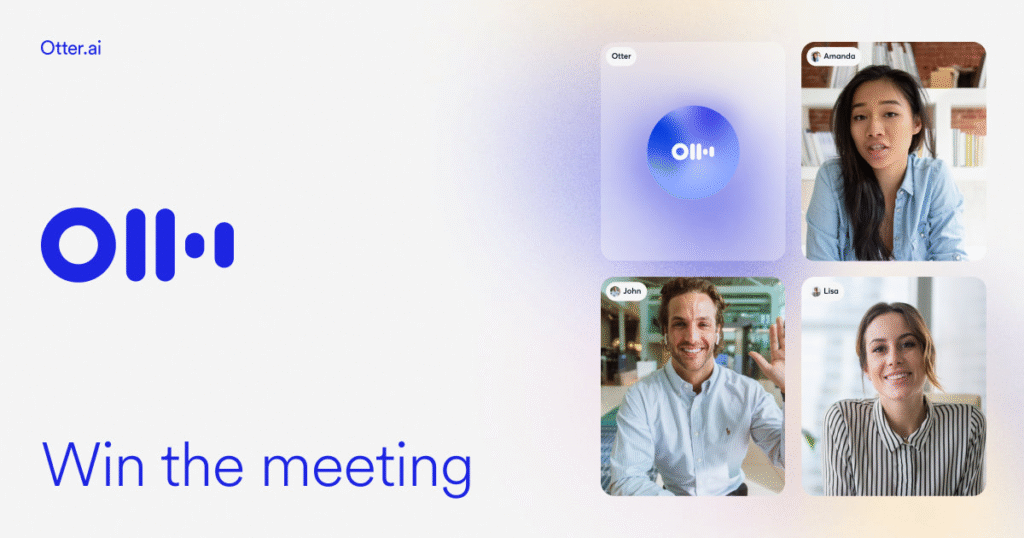
Why it’s a Game-Changer: For neurodivergent individuals, listening, processing, and note-taking simultaneously in a meeting is a recipe for missing information. Otter.ai as a cognitive tool will be your assistant. It records all the material with high accuracy, lets you outline the most important things in the middle of the recording, and creates a summary after it is over. This gives you the chance to concentrate well in the discussion without panicking that you may miss some important information.
Best for: Students in lectures, professionals in meetings, and anyone who has auditory processing challenges.
Link: Try Otter.ai here
4. Brain.fm: Focus Engineered by AI
What it is: A music service that uses AI to create functional music designed to enhance focus, relaxation, or sleep.
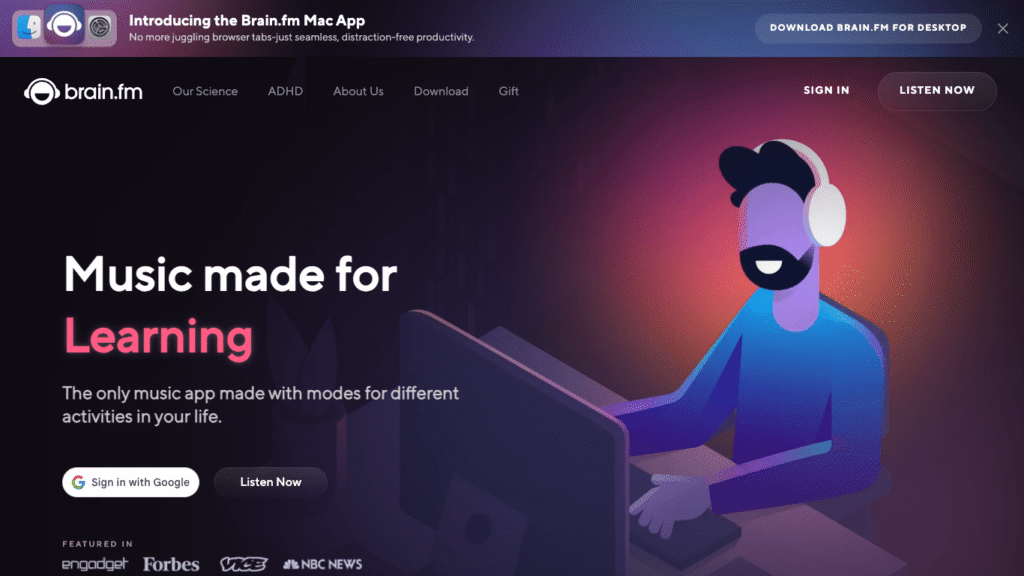
Why it’s a Game-Changer: The music isn’t just curated; it’s computationally generated to create specific neural oscillations. To increase focused attention, it includes steady rhythmic pulses so as to promote focused attention and to synchronize brainwaves. It is a great way to trick the ears to foster personal relaxation and focus to counteract the backup noise.
Best for: Creating a focus ritual, drowning out distracting noises, and improving meditation or sleep.
Link: Focus with Brain.fm
Integrating AI Tools Into Your Daily Flow: A Practical Guide
Even the adoption of new tools may pose a challenge in itself The best thing you can do is as follows:
- Identify Your Biggest Pain Point: Are you unable to start tasks? Do you misplace time? Do you forget oral instructions? Pick the one thing that causes the most stress and find a tool that specifically addresses it. Start with only one tool.
- Schedule a “Tool Time”: Hyper-focus can be a superpower. Schedule 30 minutes of time to tinker with your new tool. See all of its features without being hassled And do not make this another chore.
- Use AI to Learn AI: This is a pro tip. Go to ChatGPT or Claude and ask: “I am trying to use [Tool Name] to help with [my specific challenge]. Can you give me a step-by-step guide on how to get started and suggest some advanced features I should try later?”
- Be Kind to Yourself: Some tools will stick; others won’t. That is not failure- it is information You are finding out what fits with your individual brain.
The Future is Personalized: What’s Next for AI and Neurodiversity?

What we have today are just the tools of the beginning Even further personalization is pointing towards the future
- Predictive Scheduling: AI that doesn’t just schedule your tasks but also predicts your energy levels throughout the day and week, placing demanding cognitive work during your peak times.
- Integrated Life Platforms: Imagine a single AI that seamlessly connects your calendar, task manager, health data (sleep, exercise), and even smart home devices to create an ecosystem that proactively supports your focus and reduces sensory overload.
- Emotional Regulation Aids: AI that can analyze your tone in written communication or your voice patterns to gently suggest a break or a breathing exercise if it detects signs of rising stress or frustration.
Conclusion: Building Your Cognitive Scaffold
Organising your mind is not about an attempt to put your beautiful divergent brains in a neurotypical box. It is a creation of a scaffold- a supportive structure that enables your creativity, intelligence, and inimitable perspective to flourish without being constrained by the executive function complexities that come along with it.
The niche and underrated AI tools that we have had a look at are not merely applications but partners in this process. They provide insight, flexibility and open-mindedness to productivity. From shattering task paralysis with Goblin.Tools to architecting your time with Motion, this technology is providing the maps we actually need, in a language we can finally understand.
The aim was not to just try harder. The goal is to try something different. With AI, different is potent, available and customized like never before. So take time to relax and choose one of the tools and begin curing yourself through building the scaffold that will help you to organize your mind and realize your potential.
Email: adil.taskthegroup@gmail.com







